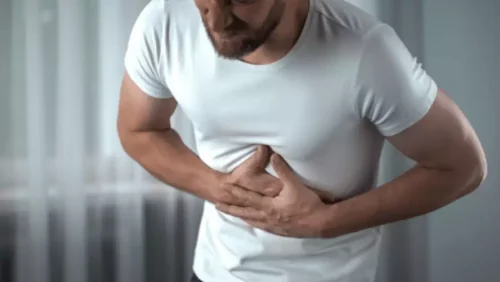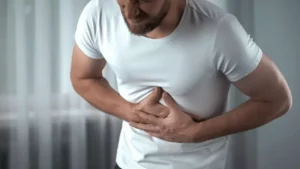
While moderate alcohol consumption is generally considered safe, excessive drinking can have negative effects on both physical and mental health. One common concern that arises is whether or not alcohol can cause panic attacks. In this article, we will delve into the topic of alcohol-induced panic attacks, discussing the symptoms and potential solutions. Please note that this content is for informational purposes only and does not substitute professional medical advice. This may happen during or after drinking, particularly when blood alcohol levels begin to drop. While alcohol can definitely trigger anxiety and panic attacks, it doesn’t necessarily cause permanent anxiety.
- Here, you will also learn how to live without alcohol, manage anxiety healthily and live a sober life free of pain and suffering.
- It is frequently used to treat anxiety disorders, including those triggered by alcohol use.
- Therapists may use exposure therapy to gradually reduce anxiety responses to alcohol-related triggers.
- The intensity of these symptoms can be terrifying and may lead individuals to avoid situations where they fear a panic attack might occur.
Alcohol support services
- However, the pain can be alarming and may cause individuals to seek immediate medical attention.
- It also explores what is known about use of antidepressants in people with non-alcohol SUDs.
Drinking alcohol causes a number of immediate effects in your body – your heart rate may increase, your blood sugar drops and you may https://ecosoberhouse.com/ eventually become dehydrated. If you are sensitive to the effects of alcohol, these uncomfortable sensations can trigger a panic attack. About 3.1% of the U.S. population is affected by generalized anxiety disorder, according to the Anxiety & Depression Association of America. If you’re feeling nervous about being in a social setting, you may pour yourself a glass of wine to self-regulate any stress.
How alcohol affects anxiety
Social withdrawal is not uncommon, as people may isolate themselves to manage their symptoms. Increased alcohol consumption to self-medicate anxiety can create a harmful cycle, worsening symptoms over time. Panic attacks can occur as part of panic disorder or other anxiety disorders.

Lean on social support
If the panic attack is severe or lasts a long time, don’t hesitate to call for medical help. Early diagnosis and treatment are critical in preventing the condition from worsening. If you’re struggling with anxiety related to alcohol use, our telemedicine practice can provide personalized care and support. Don’t wait—reach out to us today to start your journey toward better mental health. Escitalopram is often prescribed for patients with persistent anxiety symptoms related to alcohol-induced anxiety disorder.
What is the link between alcohol and panic attacks?
- Sleep disturbances, including insomnia and poor sleep quality, affect 60-80% of individuals with alcohol-induced anxiety disorder.
- Similarly, if you find yourself regularly experiencing the symptoms of an anxiety disorder—including panic attacks—it’s important to seek help.
- If you are experiencing regular panic attacks, you need to ask for support.
- People with GAD often find it difficult to control their anxiety and may experience symptoms such as restlessness, fatigue, difficulty concentrating, and irritability.
Find alcohol induced panic attack information on treatment options, withdrawal management, and recovery resources. Naltrexone is typically prescribed for patients trying to reduce or stop alcohol consumption. It is usually taken once daily and can be combined with other medications for anxiety. Diazepam is a benzodiazepine that enhances the effects of the neurotransmitter GABA, helping to reduce anxiety. Alcohol disrupts sleep patterns, leading to insomnia or fragmented sleep, which can worsen anxiety. Alcohol is a drug like any other, and anything that affects your body like alcohol does has the potential to contribute a great deal to your panic attacks and anxiety more generally.

Intense anxiety is very unpleasant and can cause anyone to drink.
Studies have found that heavy drinkers have increased cortisol levels due to alcohol’s effects on the body. Elevated cortisol levels can lead to feelings of anxiety or restlessness. It is very common for people who experience anxiety to self-medicate by consuming alcohol, which can offer a temporary fix. In fact, research suggests that around 25% of people with panic disorder also have an alcohol dependence.
Could antidepressants worsen SUD outcomes? An old/new idea?
To prevent future episodes of anxiety-induced chest pain, it’s important to manage stress levels and adopt healthy lifestyle habits. Exercising regularly can help reduce anxiety by releasing endorphins and promoting relaxation. Additionally, getting enough sleep, avoiding excessive caffeine or alcohol, and engaging in mindfulness practices can help to lower anxiety levels and prevent anxiety-related symptoms. Panic attack symptoms often include a racing heart rate, difficulty catching one’s breath, and sensations of tightness in the chest. While these symptoms can mimic those of a heart attack, it’s important to note that panic attacks are not life-threatening, even though they feel incredibly intense.
- If you are concerned that you or someone you care about has a problem with alcohol there is a lot of help available.
- We’re explaining the link between alcohol and anxiety –– plus six ways to cope with panic attacks.
- They can offer support and guidance as you navigate these challenges.
- If you’re experiencing a panic attack after drinking, it can feel really scary.
- An intensive treatment programme will also include educational presentations delivered by therapists, access to a fitness programme, and complementary therapies such as equine therapy.
How to cope with alcohol-related panic attacks
Given their unpredictable nature, people who suffer with panic disorder find that the anticipation of the next wave of panic is generally worse than the panic itself. The good news is that people can learn how to effectively manage their anxiety and stop their panic attack with the proper education and therapy tools. While occasional alcohol consumption may not directly cause panic attacks in everyone, excessive drinking has been linked to an increased risk of experiencing them. Alcohol affects brain chemistry and can disrupt the balance of certain neurotransmitters responsible for regulating mood and anxiety levels.

Mindfulness
It is not recommended to use alcohol as a coping mechanism to avoid panic attacks and feelings of anxiety, as this can make the initial problem worse in the long term. As the effects of alcohol wear off, individuals may experience heightened anxiety, creating a cycle of dependence. This pattern can make it challenging to break free from using alcohol as a coping mechanism. While it may offer short-term relief, it can lead to long-term problems. Regular drinking can interfere with sleep patterns, disrupt brain chemistry, and worsen anxiety symptoms over time. Working with a therapist generally involves regular talk therapy sessions where you discuss your feelings, problem-solving strategies, and coping mechanisms to help with your condition.

Unveiling the Shadows: Understanding Childhood Trauma Tests and Their Impact
Not to mention, if you’re a chronic heavy drinker, it marijuana addiction can further deplete GABA and impact other neurotransmitters, too. For individuals dependent on alcohol, alcohol withdrawal symptoms can significantly impact anxiety levels. Symptoms of alcohol withdrawal often include severe anxiety, agitation, and panic attacks. This occurs because the brain struggles to regain equilibrium without the presence of alcohol to modulate neurotransmitters.
